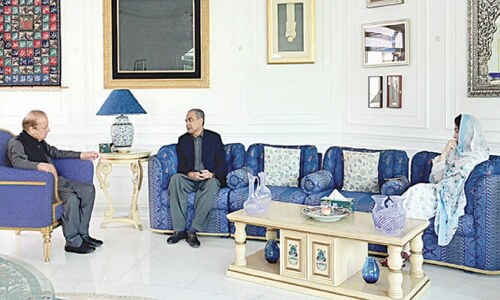REALPOLITIK suggests that Pakistan should be considering all offers that can help shore up its fragile economy. In this regard, Russian President Vladimir Putin’s offer to reactivate the Pakistan Stream gas pipeline project, made to Prime Minister Shehbaz Sharif during the Shanghai Cooperation Organisation summit in Samarkand, should be taken up if it is beneficial to the country. The project, finalised in 2015 but largely dormant, is designed to carry LNG from Karachi to power plants in Punjab. While critics would say it is a political statement by the Russian leader designed to loosen his country’s West-imposed isolation following Moscow’s invasion of Ukraine, Pakistan must consider Mr Putin’s offer on its merit.
Instead of geopolitical considerations, the two main questions Pakistani policymakers should be asking about the Russian gas project are: is it good for the country’s energy security, and is it achievable? The fact is that Pakistan has been involved in various regional pipeline projects, and nearly all of them have remained pipe dreams. For example, the Turkmenistan-Afghanistan-Pakistan-India pipeline scheme, announced in 2014, remains on the drawing board. Meanwhile, the Iran-Pakistan gas pipeline also hangs in the balance; while Tehran completed its side of the pipeline in 2011, we have yet to build our portion. There are various reasons for lack of progress on both these projects, which include geopolitical, financial and technical issues. Therefore, while Mr Putin’s offer sounds good, Pakistan needs to do its homework before continuing, lest this scheme is also put on hold for the foreseeable future. The fact that Pakistan needs affordable and reliable energy supplies to power its industrial and economic activities, as well as for domestic use, is obvious. The question is: how and where to secure those supplies, along with improving the output of renewable sources? If Russia can supply affordable gas and oil, there is no reason why Pakistan should back off fearing a backlash from the US-led Western bloc. While Pakistan should not seek conflict with any bloc, energy security is a matter of national sovereignty, and diktat from foreign quarters is unwelcome. Interestingly, India is straddling both the Western and ‘other’ blocs; New Delhi is a member of the anti-China Quad, yet it also partners with the SCO, of which Beijing is a founding member, and has been snapping up deeply discounted Russian oil despite Western discomfort. In such a scenario, Pakistan’s Western friends have no right to hector this country about deepening energy ties with Russia.
Published in Dawn, September 17th, 2022













































